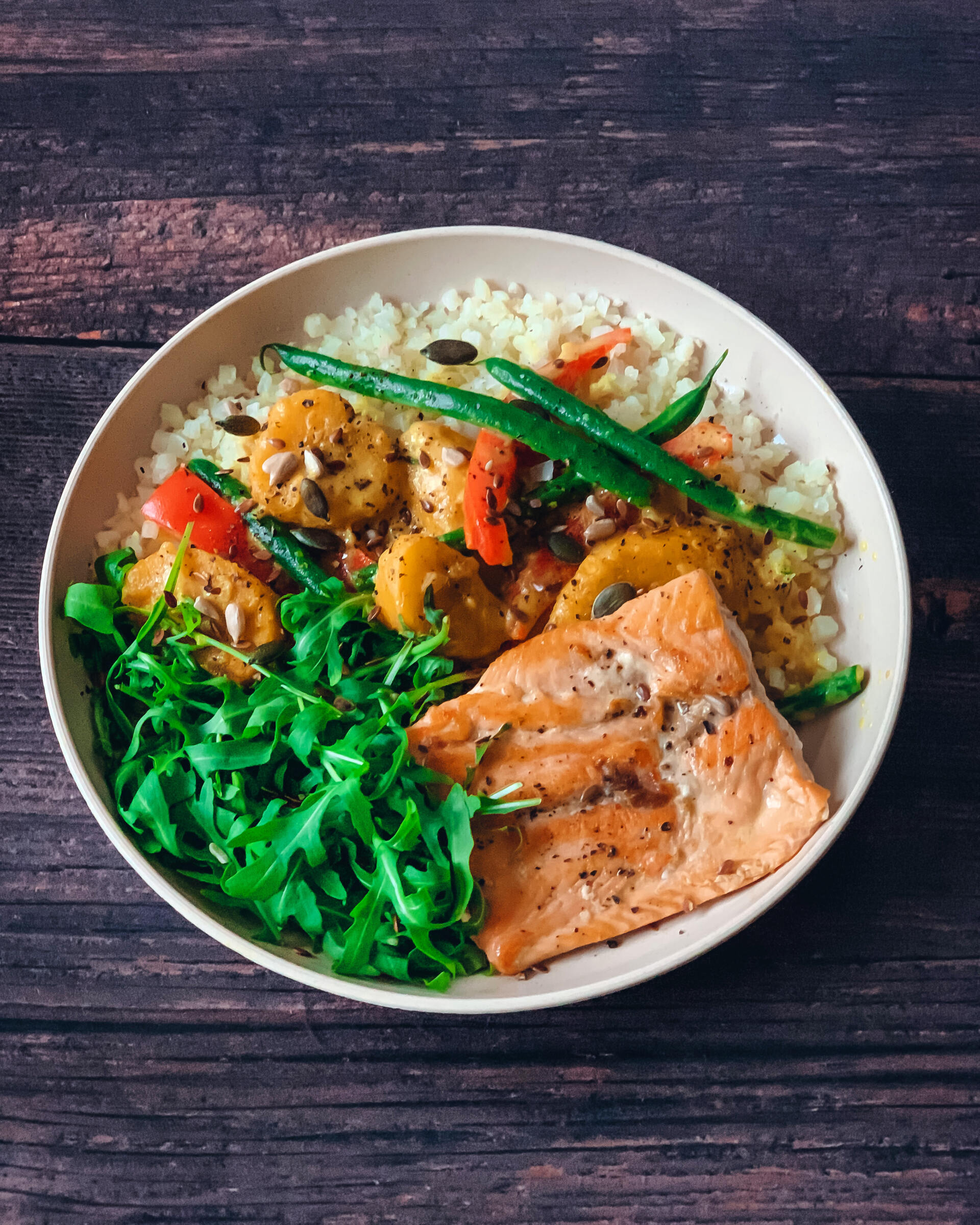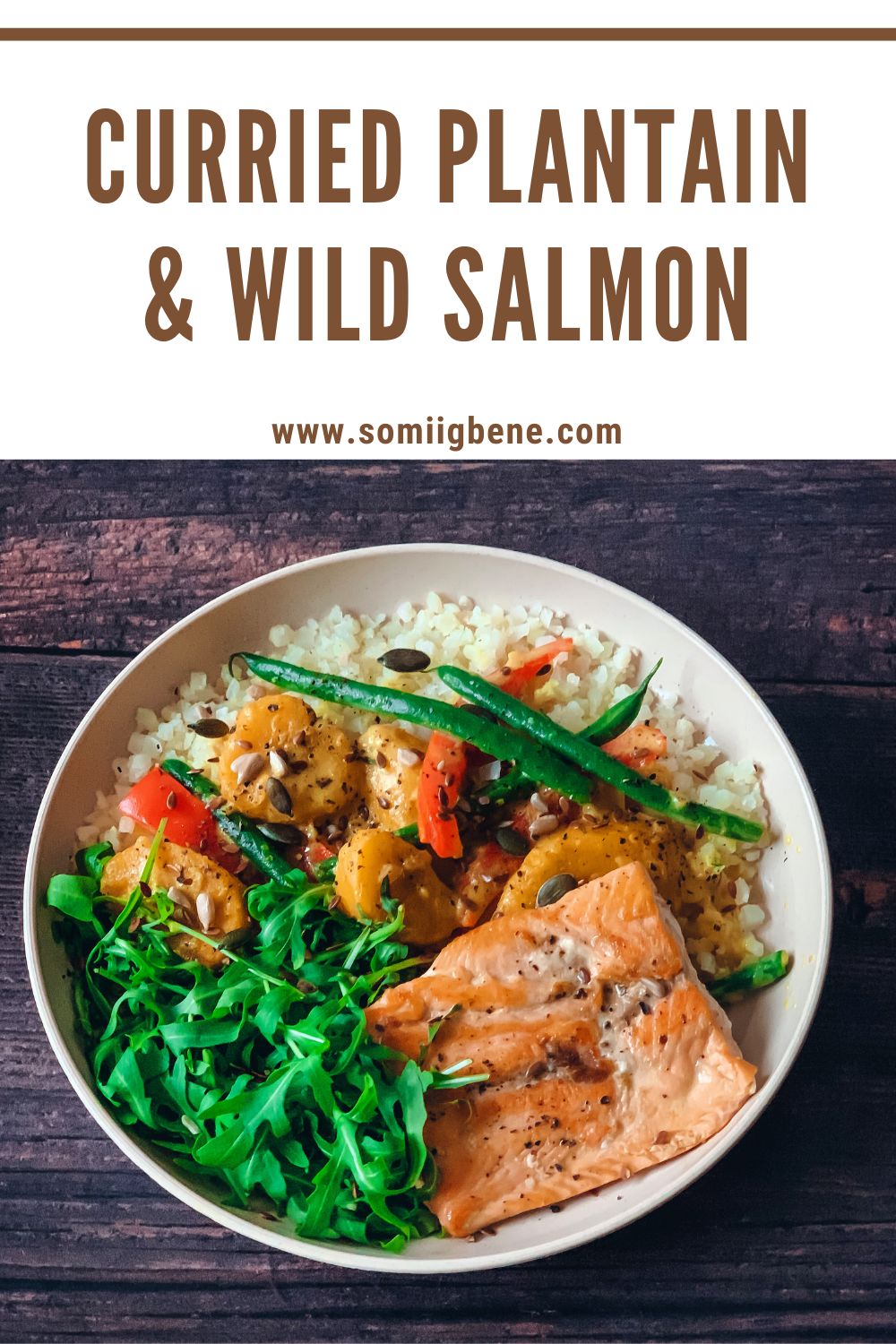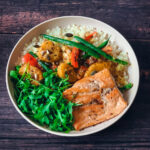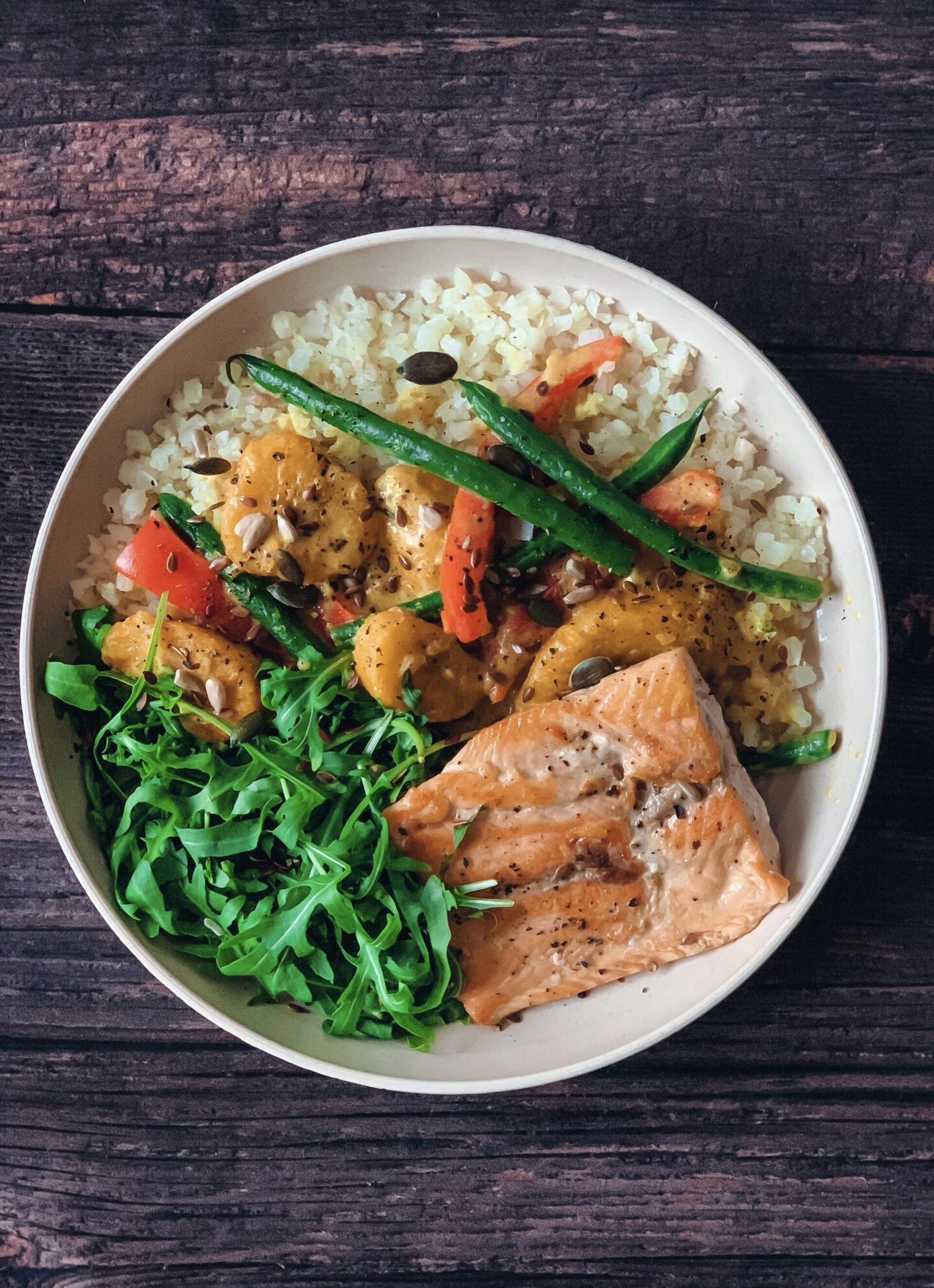
Anti-inflammatory Buddha bowl with curried plantain cauliflower rice and wild salmon.
Inflammation is necessary for survival, but the process becomes damanging if it turns chronic, continuing for weeks, months or indefinitely.
For chronic inflammation to occur, you need to be genetically predisposed, and environmental stressors need to be present before a trigger sets its off.
Food is one way to reduce inflammation, as it contains many nutrients that reduce inflammation at the cellular level.
Nutritional highlights of Curried Plantain, Cauliflower Rice & Wild Salmon
Plantain is a rich source of beta carotene, the precursor to vitamin A. Vitamin A is crucial for the health of the stomach mucuous membranes and in improving immune tolerance.
Turmeric is rich in curcumin, a yellow pigment that inhibits the activation of proteins that trigger inflammation. Curcumin is proven to reduce the symptoms of inflammatory bowel disease (IBD), asthma, arthritis, psoriasis, diabetes and depression.
Shallots contain quercetin, a flavonoid that inhibits histamine release, and thus has an anti-allergy effect.
Ginger contains gingerols that inhibit the action of inflammatory proteins and reduce oxidative stress. Gingerols are also useful in controlling the process of the ageing.


Curried Plantain, Cauliflower Rice & Wild Salmon
- Prep Time: 5 mins
- Cook Time: 15 mins
- Total Time: 20 minutes
- Yield: Serves 4
- Category: Lunch/Dinner
Description
An anti-inflammatory budda bowl with curried plantain and wild salmon.
Ingredients
- 2 unripe (green) plantains, cut into medium slices
- 200ml light coconut milk
- 1 tablespoon Madras curry powder
- ½ teaspoon ground turmeric
- ¾ teaspoon ground ginger
- 1 tablespoon olive oil
- 2 large shallots, finely chopped
- 1 fat garlic clove, finely minced
- 1 vegetable stock cube
- 200g green beans, trimmed
- 1 large red pepper, cut into medium slices
- 4 medium salmon fillets
- Salt and black pepper, to taste
- 640g cauliflower rice, to serve
Instructions
- Season salmon fillets with salt and black pepper then bake in the oven on parchment paper for 15-20 minutes.
- Meanwhile, heat oil in a large saucepan. Add shallots and fry over medium heat for one minute. Add plantain, garlic, curry powder, turmeric and ginger. Fry for 2 minutes until fragrant.
- Stir in coconut milk, vegetable stock cube, red pepper and green beans. Season with salt and black pepper then simmer for 5 minutes.
- Divide curry into four bowls. Serve with cauliflower rice and a salmon fillet. Garnish with fresh coriander if you wish
Nutrition
- Serving Size: Per Serving
- Calories: 491
- Sugar: 16.7g
- Fat: 24.2g
- Saturated Fat: 6.5g
- Carbohydrates: 32.8g
- Fiber: 10.7g
- Protein: 35.4g
- Cholesterol: 68mg

REFERENCES
- Sidhu, J.S., and Zafar, T.A. (2018) Bioactive compounds in banana fruits and their health benefits. Food Quality and Safety, 4(2), 183-188.
- Huang, Z., Liu, Y., Qi, G., Brand, D., and Zheng, S.G. (2018) Role of vitamin A in the immune system. Journal of Clinical Medicine, 7(9), 258.
- Hewlings, S.J. and Kalman, D.S. (2017) Curcumin: A review of its effects on human health. Foods, 6(10), 92.
- Li, Y., Yao, J., Han, C., Yang, J., Chaudry, M.T., Wang, S., Liu, H., and Yin, Y (2016) Quercetin, inflammation and immunity. Nutrients, 8(3), 167.
- Mashhadi, N.S., Ghiasvand, R., Askari, G., Hariri, M., Darvishi, L., and Mofid, M.R. (2013) Antio-oxidative and anti-inflammatory effects of ginger in health and physical activity: Review of current evidence. International journal of preventive medicine, 4(Suppl 1), S36-S42.

